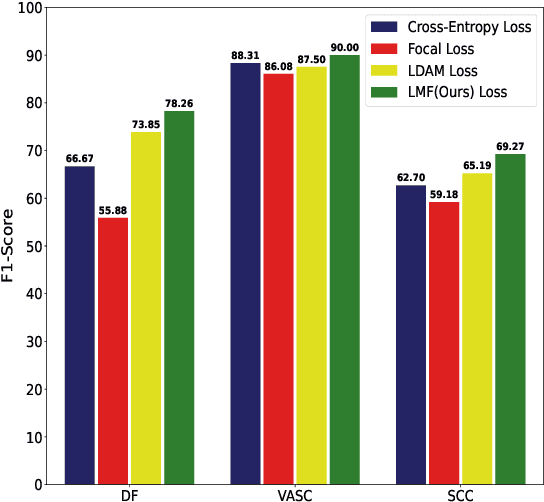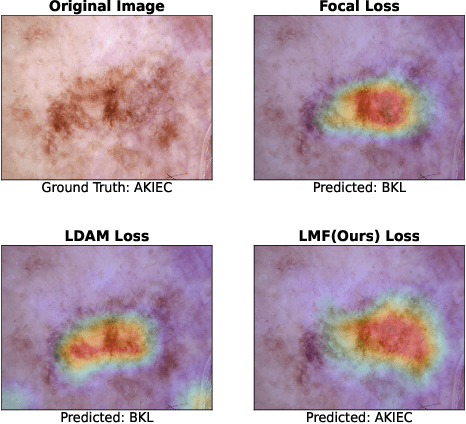Abu Adnan Sadi
Automatic Differential Diagnosis using Transformer-Based Multi-Label Sequence Classification
Aug 28, 2024



Abstract:As the field of artificial intelligence progresses, assistive technologies are becoming more widely used across all industries. The healthcare industry is no different, with numerous studies being done to develop assistive tools for healthcare professionals. Automatic diagnostic systems are one such beneficial tool that can assist with a variety of tasks, including collecting patient information, analyzing test results, and diagnosing patients. However, the idea of developing systems that can provide a differential diagnosis has been largely overlooked in most of these research studies. In this study, we propose a transformer-based approach for providing differential diagnoses based on a patient's age, sex, medical history, and symptoms. We use the DDXPlus dataset, which provides differential diagnosis information for patients based on 49 disease types. Firstly, we propose a method to process the tabular patient data from the dataset and engineer them into patient reports to make them suitable for our research. In addition, we introduce two data modification modules to diversify the training data and consequently improve the robustness of the models. We approach the task as a multi-label classification problem and conduct extensive experiments using four transformer models. All the models displayed promising results by achieving over 97% F1 score on the held-out test set. Moreover, we design additional behavioral tests to get a broader understanding of the models. In particular, for one of our test cases, we prepared a custom test set of 100 samples with the assistance of a doctor. The results on the custom set showed that our proposed data modification modules improved the model's generalization capabilities. We hope our findings will provide future researchers with valuable insights and inspire them to develop reliable systems for automatic differential diagnosis.
LMFLOSS: A Hybrid Loss For Imbalanced Medical Image Classification
Dec 24, 2022



Abstract:Automatic medical image classification is a very important field where the use of AI has the potential to have a real social impact. However, there are still many challenges that act as obstacles to making practically effective solutions. One of those is the fact that most of the medical imaging datasets have a class imbalance problem. This leads to the fact that existing AI techniques, particularly neural network-based deep-learning methodologies, often perform poorly in such scenarios. Thus this makes this area an interesting and active research focus for researchers. In this study, we propose a novel loss function to train neural network models to mitigate this critical issue in this important field. Through rigorous experiments on three independently collected datasets of three different medical imaging domains, we empirically show that our proposed loss function consistently performs well with an improvement between 2%-10% macro f1 when compared to the baseline models. We hope that our work will precipitate new research toward a more generalized approach to medical image classification.
 Add to Chrome
Add to Chrome Add to Firefox
Add to Firefox Add to Edge
Add to Edge